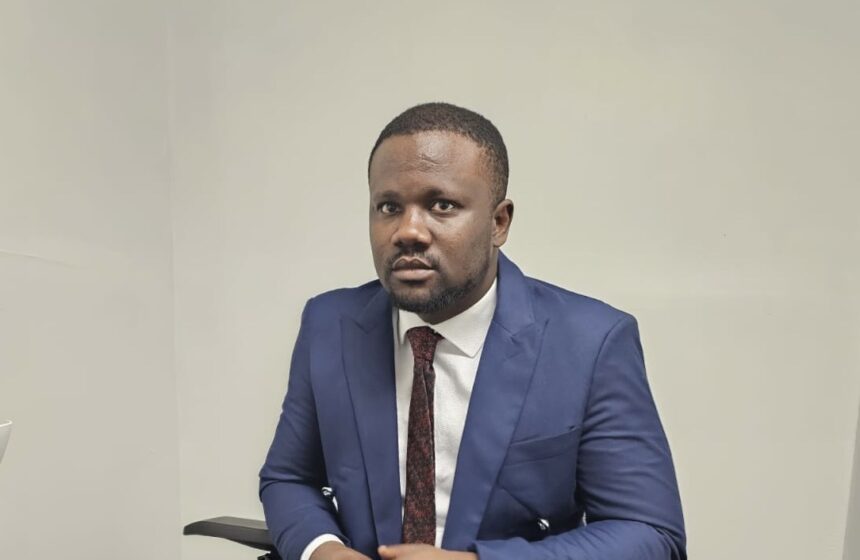By: Bayo Akeem
A seasoned medical doctor and researcher from Delta State, Dr. Henry Onyemarim, is making waves in the global medical field with groundbreaking work in reproductive physiology and public health advocacy.
With over a decade of experience, Dr. Onyemarim’s career reflects a rare blend of clinical expertise, cultural empathy, and visionary research, firmly establishing him as one of Nigeria’s leading voices in reproductive healthcare advancement.
In an exclusive interview with our correspondent, Onyemarim detailed how his humble beginnings in Ekuku Agbor, a rural village in Delta State, influenced his decision to pursue medicine.
“Growing up in a community with limited access to medical care shaped my understanding of healthcare challenges,” he said.
“It fueled my desire to contribute meaningfully to medicine, especially in areas that directly affect vulnerable populations.”
Onyemarim’s educational journey began with a Bachelor’s degree in Human Physiology from Delta State University in 2012, followed by an MBBS and a Master’s in Reproductive and Endocrine Physiology from the University of Nigeria, Nsukka.
These qualifications laid the foundation for his focus on reproductive health, a field he believes is critical to individual and societal well-being.
“My academic and professional path reflect a deep commitment to addressing complex reproductive health issues,” he noted.
“From infertility treatments to hormonal research, reproductive physiology offers a pathway to improve lives on a large scale.”
He emphasized that the choice of specialization was not just a professional decision but a mission inspired by his early life experiences.
Recognized by the National Center for Biotechnology Information (NCBI), Dr. Onyemarim’s research explores the socio-economic impact of reproductive health in Nigeria.
His work highlights how reproductive wellness is intricately linked to development.
“Reproductive health is not just a personal issue; it’s a national development concern,” he stated. “When families thrive, economies grow.”
Beyond Nigeria, Onyemarim collaborates with global institutions, including the Centers for Disease Control and Prevention (CDC), and contributes to international efforts to make quality reproductive care accessible.
“Global collaboration is key,” he said. “Partnering with international agencies allows us to introduce proven models into local systems and promote equitable healthcare.”
His practical work in assisted reproductive technologies (ART) like in vitro fertilization (IVF) underscores his dedication to applying innovation in patient care.
“Technology in reproductive medicine has revolutionized how we approach infertility,” Onyemarim explained. “With personalized treatments and a growing understanding of genetics, we’re seeing transformative outcomes.”
Looking ahead, Dr. Onyemarim predicts a future where medical breakthroughs and societal attitudes converge. “The future of reproductive health is inclusive and tech-driven,” he said.
“Telemedicine, gene editing, and public awareness will drive change, but society must also evolve to reduce stigma and promote education around these issues.”
Despite his achievements, Onyemarim remains committed to mentorship, especially for underrepresented youths. “Aspiring professionals from disadvantaged backgrounds should see their story as strength,” he advised. “Your voice matters. Let it shape healthcare policies, research, and innovations that reflect our diverse realities.”
Onyemarim’s journey, from a rural village in Nigeria to global recognition, is a compelling story of purpose and persistence. His work continues to inspire a new generation of Nigerian medical professionals, proving that resilience, education, and a global outlook can transform healthcare narratives at home and abroad.
WATCH TOP VIDEOS FROM NIGERIAN TRIBUNE TV
- Let’s Talk About SELF-AWARENESS
- Is Your Confidence Mistaken for Pride? Let’s talk about it
- Is Etiquette About Perfection…Or Just Not Being Rude?
- Top Psychologist Reveal 3 Signs You’re Struggling With Imposter Syndrome
- Do You Pick Up Work-Related Calls at Midnight or Never? Let’s Talk About Boundaries






